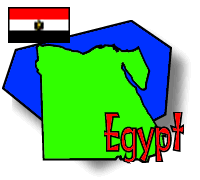Word of the Day: Fein . . . ? — "Where is the . . . ?"
Person of the Day: People of Egypt ![]()
Place of the Day: Bridge over the Nile in Zifta/Mit Ghamr
Tech Fact of the Day: Egyptian service taxis
Group Dispatch, December 1–2

Questions? Ask Padraic ![]() !
!
Return to Fast Facts
 |
 |
 |
 |
 |
|
Itinerary/ Journal |
Discussions |
About Egypt |
eDscape Projects |
Scrapbook |
|
|
|
|
|
|
Internet access while in Egypt was provided by InTouch Communications Services. |
Copyright 1997-2004 BikeAbout. All rights reserved.
